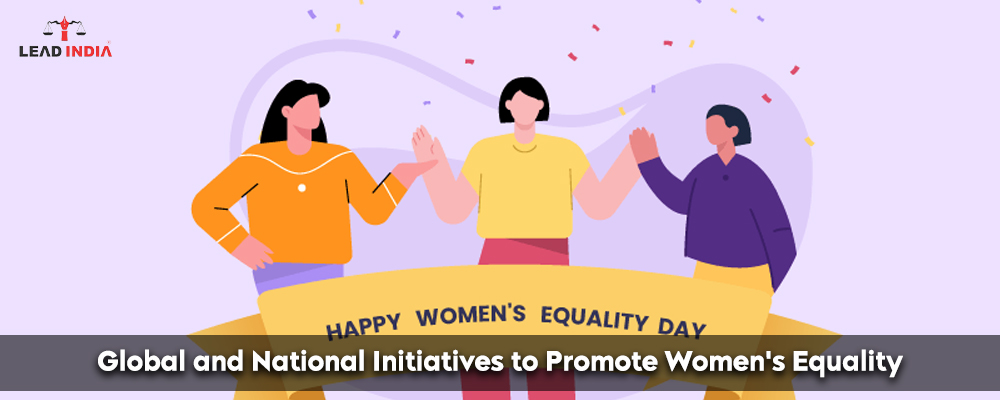Women and girls everywhere must have equal rights and opportunities, as well as the ability to live without violence or prejudice. Women’s equality and empowerment is one of the 17 Sustainable Development Goals, but it is also essential to other aspects of inclusive and sustainable development. In short, Goal 5 is critical to achieving all of the SDGs.
Gender equality by 2030 necessitates immediate efforts to address the numerous core causes of discrimination that continue to limit women’s rights in both the private and public realms. Discriminatory laws, for example, must be repealed, and legislation enacted to advance equality proactively. However, 49 countries still lack legislation protecting women from domestic violence, while 39 prohibit equal inheritance rights for daughters and sons. Eliminating gender-based violence is a top priority, as it is one of the most common human rights abuses in the world.
According to data from 87 countries, one in every five women and girls under the age of 50 would have experienced physical and/or sexual assault from an intimate partner within the last year. Every year, 15 million girls under the age of 18 lose their youth to harmful practices like child marriage.
Need A Legal Advice
The internet is not a lawyer and neither are you. Talk to a real lawyer about your legal issue

Global and National Initiatives to Promote Gender Equality
Advocating for women’s emancipation has progressed during the past few decades. Education and financial independence are two critical tools for women’s empowerment and different efforts have been launched to encourage them. This is accomplished through initiatives initiated at both the national and local levels.
The Government of India launched Beti Bachao, Beti Padhao in 2015 to raise public awareness about the importance of girls’ education. Working women’s hostels were established as part of a strategy to benefit working women.
Schemes such as the Ujjwala Yojana, which was started in 2016 to provide women with ‘ smoke-free lives’, play an important role in promoting societal change and benefiting women’s health. Equality is also widely understood and practiced on a worldwide scale. This is demonstrated by Sustainable Development Goal (SDG) 5, which seeks to achieve gender equality and empower all women and girls. A sustainable world cannot exist until all genders have the basic right to equality.
International frameworks and commitments
Various frameworks and conventions have been adopted and ratified on a worldwide scale to advance women’s rights. Two examples are as follows:
- Convention for the Elimination of All Forms of Discrimination Against Women (CEDAW): CEDAW, often known as the International Bill of Rights for Women, consists of a preamble and 30 articles that define discrimination against women. The United Nations General Assembly (UNGA) adopted this historic treaty in 1979. Notably, it is the only human rights pact that recognizes women’s reproductive rights. In 1993, India ratified the CEDAW convention.
- The Beijing Declaration and Platform for Action: It is regarded as the most “progressive blueprint” for increasing women’s rights. It was the result of 1995’s Fourth World Conference on Women. The framework focuses on the objectives of equality, progress, and peace for all women worldwide. India also played a key role in the approval of this proclamation.
Women’s Participation in Politics and Government
The extent to which women participate in politics and hold positions of power varies at each level of government. Despite advances in the discourse on women’s equality, women remain significantly underrepresented, particularly at higher levels. To have effective governance, there must be more female representation, as this results in more inclusive policies that better serve the needs of the entire population.
According to UN Women figures, women make up only 26.5% of legislators in the Lower House. Only six countries have 50% or higher representation in the Parliament. The same data shows that if the current trend continues, gender parity in national legislative bodies will not be attained before 2063. Research has demonstrated that women in positions of leadership boost decision-making processes. This is obvious from the outcomes of Panchayats in India. UN Women provides research on panchayats (local councils) in India, which revealed that areas with women-led councils had 62% more drinking water projects than those with men-led councils.
Lead India offers free legal advice and online information, in addition to other legal services. We provide a forum to talk with a lawyer and ask legal questions. Lead India’s solicitors can help you with any legal difficulties. Lead India’s solicitors may assist you with any legal issues. Lead India also provides free online legal help in India. In addition to giving online legal assistance, Lead India allows users to ask specialist questions for free.





 Talk to a Lawyer
Talk to a Lawyer